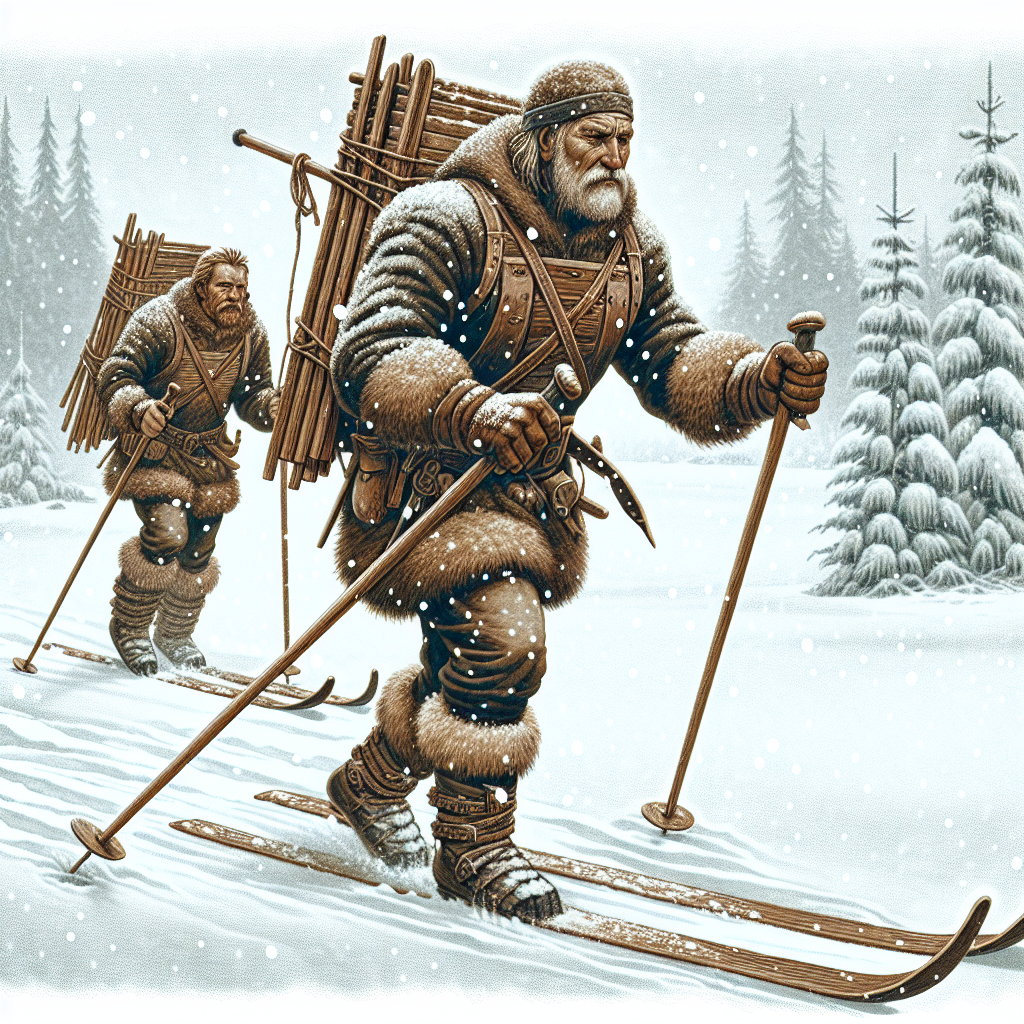The Birth of Skiing
The Norse Birkebeiner

Two Birkebeiner skiing in the snowy northern lands – AI-generated image
Modern skiing derives its name and purpose from the Norwegian word skìo. The invention of what is today one of the most popular winter sports can be traced back to the ancient Nordic Scandinavian populations, who needed an effective way to move across the icy, snowy landscapes of Northern Europe. Numerous artifacts—such as wooden skis found in a Swedish peat bog and Norse stone carvings depicting primitive skis with wooden poles—demonstrate the significance of this means of travel. Norse mythology also highlights its importance, with gods like Skaði and Ullr often portrayed on skis while hunting and credited with their invention.
The widespread use of skiing as a mode of transport, however, can largely be attributed to the Birkebeiner (from Old Norse: Birkibeinar), a Norwegian rebel faction founded in 1147 by Count Erling Skakke in support of Eystein Meyla, a contender for the Norwegian throne, during the Norwegian Civil Wars (1130–1240). Their name stems from derogatory propaganda, suggesting they were so poor they wore only birch-bark shoes (Birken means "birch" in Old Norse, and beiner means "legs"). Despite this, the Birkebeiner embraced the name with pride, so much so that it became a point of honor even after they took power in 1184.
They are still remembered heroically today for saving the two-year-old heir to the throne, Haakon IV Haakonsson (1204–1263), from rival Sigurd Ribbung by using skis to escape through the snowy Norwegian wilderness to the safe haven of Østerdalen. Haakon would later end the civil wars and become the king of the Birkebeiner themselves.
To commemorate this history, the Birkebeinerrennet, a long-distance cross-country ski race with a 700-meter elevation gain over roughly 54 kilometers, has been held since 1932 in Norway (and also in the United States). This event celebrates both the legacy of skiing and the heroic exploits of the Birkebeiner warriors who defended Haakon IV.
Sturla Þórðarson, translation by Sir George Webbe Dasent, The Saga of Hacon: And a Fragment of the Saga of Magnus, Llanerch Publisher, 1997
2025-09-07
Salvatore Ciccarello
